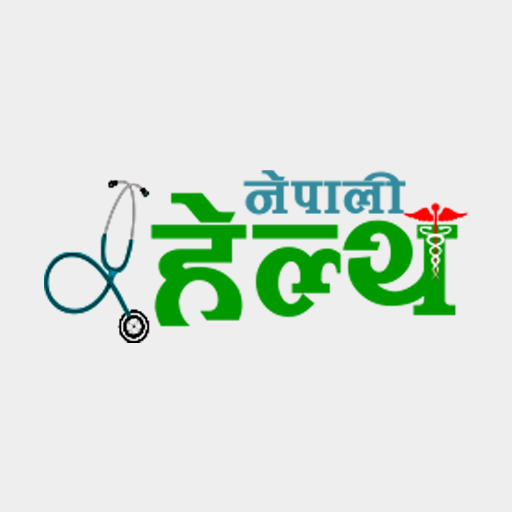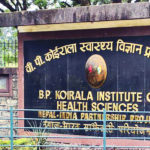Government’s Efforts on Minimum Service Standards for Health Facilities in Nepal: Reducing Inequities in Access to Health Services

Minimum Service Standards (MSS) for health facilities has once again become a national agenda and talk of town; the first decision of the newly appointed Minister of Health and Population Hon. Padam Giri, along with State Health Minister Hon. Dr Toshima Karki, taken was to ensure implementation of MSS in all level of health facilities.
MSS tools indeed are encouraging the state-owned health facilities to have a healthy competition for readiness and service availability. It is well acknowledged that the assessment, gap identification and evidence based action plan aligned with budgeting for the hospitals are crucial for its successful implementation.
Thus the decision of implementing MSS in all level of health facilities is very appreciable from the lens of health worker and manager, as it will help formulate evidence based action plans for the advocacy of budget for health facilities in holistic dimensions of governance, clinical and support services management at local, provincial and national level.
For several decades the efforts of Government of Nepal (GoN) relied on increasing the number of the health facilities with its difficult terrain and exceptionally scattered settlements, it might have been the best possible effort of that time. The assumption held was reduction in the time and hardship to commute to health facilities increases access to healthcare and service utilization. However, results of the Health Facility Assessment Survey of 2015 in Nepal showed the lack of basic amenities and basic fundamental instrument and equipment are not in place in health facilities.
The current health facility survey results (2021) show there is marked improvement in basic amenities that lacked in 2015. Further analysis is needed to claim contribution of COVID-19 preparedness and how much is shared by the continuous efforts of the managers to improve the MSS scores of their health facilities.
Realization among the leadership of Ministry of Health and Population (MoHP) and guided by National Health Sector Strategy and other key national documents in health sector, and international evidences stressing that access alone without quality is more harmful than the absence of the health services, efforts were accumulated to start from some point and this point was development of the Minimum Service Standards (MSS) for state-owned health facilities in 2018. The baseline guidance was from the existing tool of MSS for the then district level hospitals that was in place since 2014.
The process of revision of MSS for primary level hospitals and development of the MSS for secondary and tertiary hospitals from the inception to approval took a period of ten months. The process was rigorous and time taking to draw consensus from several stakeholders and among more than hundred experts involved in the making and review of documents. This momentum was followed by development and approval of MSS for health posts. The tools captivated the media when it got the attention from the Prime Minister’s Office of the then government.
The evidences with enrollment of MSS came up with several anecdotes of improvement of the readiness and service availability at state-owned hospitals and health posts. The managers of the state-owned health facilities both technical and administrative positions felt getting guidance on where to put their resources they had. These include both the software and hardware components. The experiences of the managers shared in local, provincial and national platforms stress that the major component to be strengthened to most of health facilities was to stabilize availability of human resources through public service commission.
The National Human Resources for Health (HRH) Strategy 2077/78-2086/87 of Government of Nepal (GoN) has significant role during its implementation to address this HRH issue. It was between the waves of COVID-19 the Department of Ayurveda and Alternative Medicine also designed MSS tools for their tiers of health facilities and these MSS tools were approved in last fiscal year 2078/79. Drafts of MSS for Homeopathy Hospital and centers for tuberculosis services are prepared and are under review with the respective stakeholders. Recent dissemination in fiscal year 2079/80 of the MSS tools for specialized services on – Infectious Disease Hospital, Mental Hospital, Maternity and Gynecological Disease Hospital and Pediatrics Hospital reflect the enthusiasm of the leadership to bring the existing set of MSS for all types of the health facilities in existence and ensure their readiness and service availability.
The MSS tools that concentrate so much on readiness and service availability; how does it relate to reducing inequities in access to health services?
There are inequities in access to health services globally, regionally and in Nepal too. Studies show low socio-economic status conditions, rural residence, cost of care, catastrophic health care expenses, lack of safety nets, poor service availability, lack of trust in the state-owned health facilities and unaffordable private health care as the major causes of the inequities in access to health services. In addition those who access care are in the trap of poverty with more than 665 households encounter catastrophic health care expenses as stated in further analysis of Nepal’s National Living Standard Survey III.
MSS and improvement in the scores relate to dealing with these factors already identified responsible for inequities in access for health care majorly- the service availability, gaining trust of the community towards the state-owned health facilities and catastrophic health expenses. Managers of the state-owned health facilities who are putting efforts on the improvement of scores of MSS tool are guided to the fundamentals of organizational management and accountability to the patients and their right to information. The small items in MSS that have a score of one out of the hundreds of the standards set like presence of the citizen charter, navigation board, and well-facilitated waiting area for the patients prepares health facilities from the users’ perspectives. MSS also prepares the facilities for infection prevention and control, and cleanliness of the health facilities along with the routine clinical services. The minute micromanagement guided through MSS in aspects like crowd through queue or token systems, providing audio-visual privacy to them as they visit the health workers, adequate and proportionate health workforce for the services, capacity building of human resources, and recording and reporting of the services; add probability to favorable users’ experiences.
The process of sharing the result of MSS is also inclusive and the message of the readiness and service availability at the state-owned health facility gets a platform to share its status of readiness and service availability to its pertinent stakeholders resulting a bonding and trust building in the community. Furthermore, the integration of provision of the health insurance facility and the space given to the social service unit in the MSS tool are exemplary to improve safety nets and reduce the catastrophic expenses of the community while accessing health services. At the same time the service availability of expected services through each level of health facilities and its awareness at the community becomes vital to reduce self referral of the cases saving their health expenses. And such savings count more to the people with chronic illnesses and chronic multi-morbidities.
Thus from the lens of user, coming from a lower middle income family, successful implementation of MSS provides me an increased access to health care services at the state-owned health facilities and a sense of security against catastrophe.
(#Thapa Pachya is public health professional with clinical nursing background and had worked as academician in schools of public health. She has contributed as a technical coordinator, developer and reviewer of Minimum Service Standards for health facilities in Nepal.)
सम्पर्क इमेल : [email protected]




















